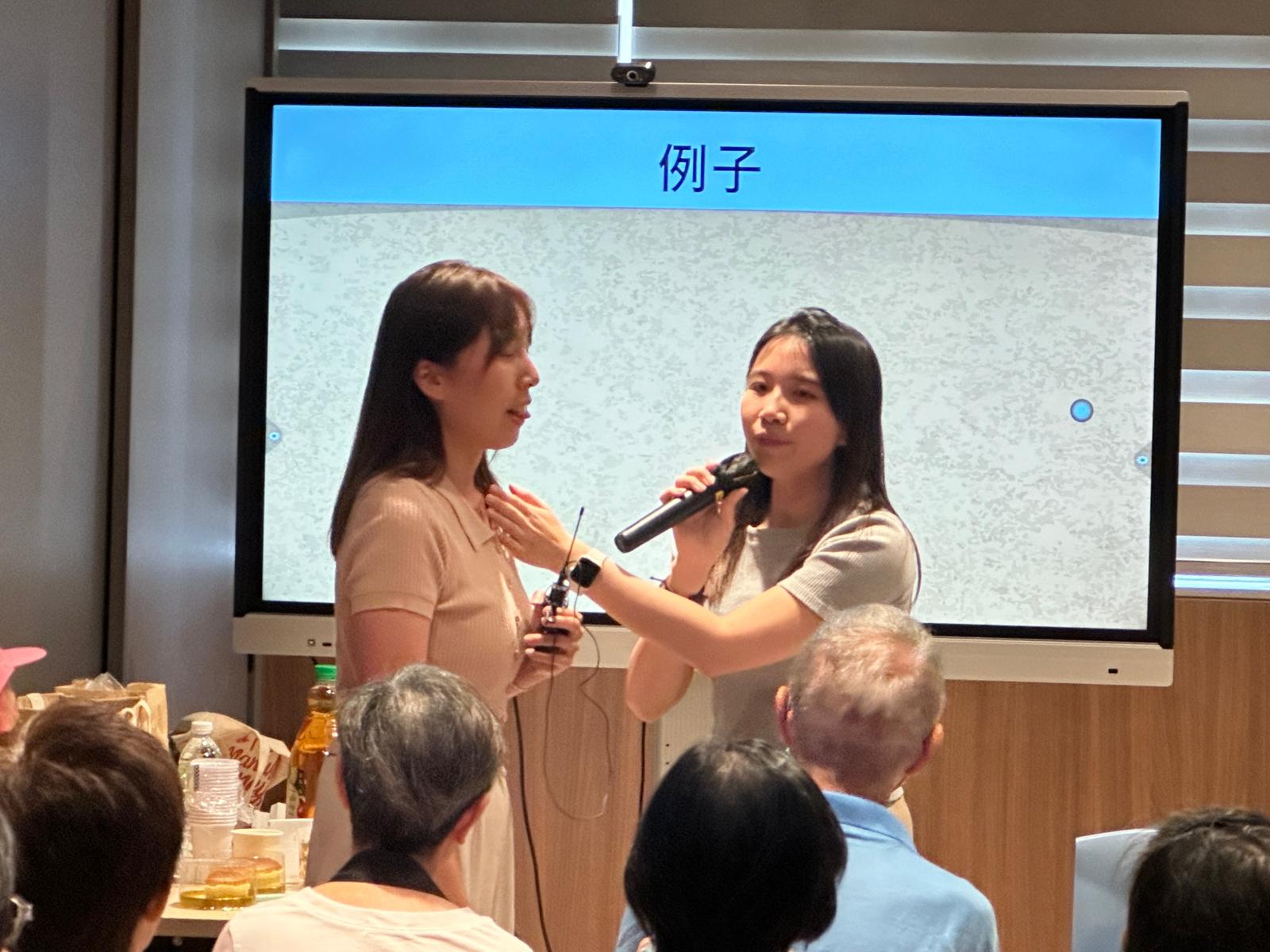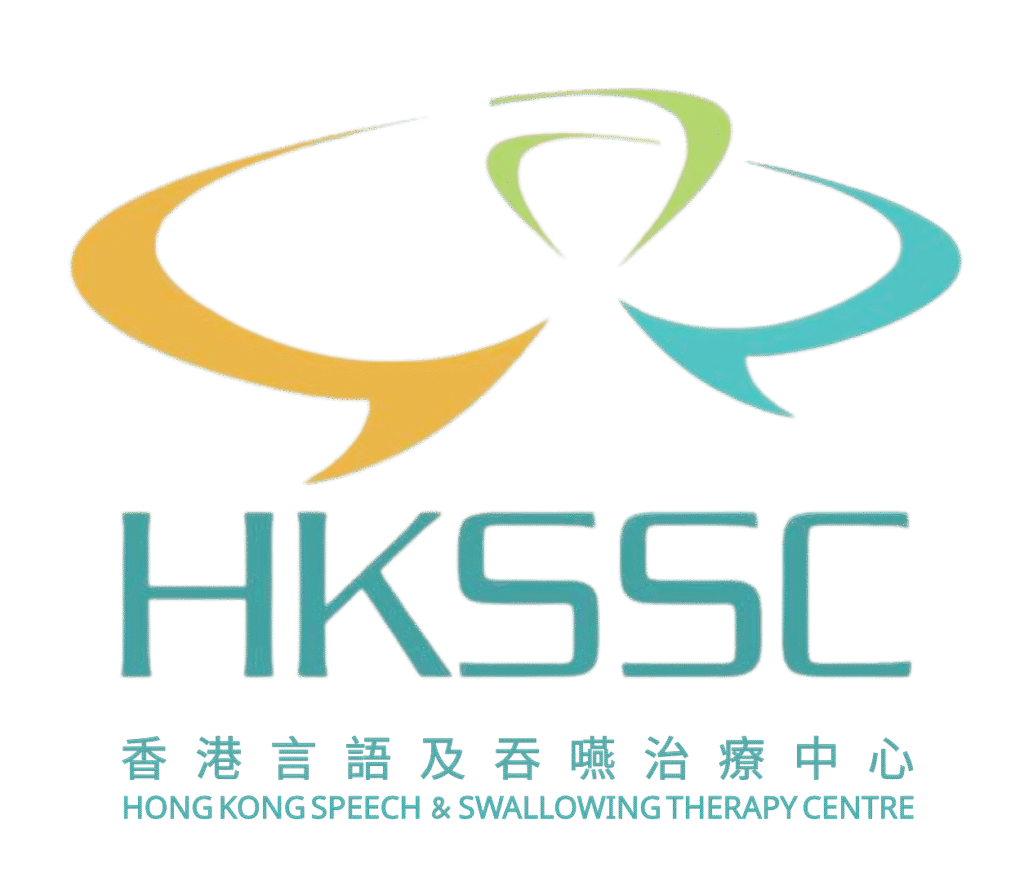-
.
Service Types
Outreach Services
School-based speech therapy service, elderly service for care centre and nursing house, conduct seminars and workshops etc.
Therapy Services
Online assessment, speech therapy, speech and language therapy, play therapy, fluency therapy, stuttering therapy, autism therapy, feeding & swallowing therapy, stroke rehabilitation etc…
Neurogenic Communication Disorder Therapy

What is Neurogenic Communication Disorder Therapy?
This type of therapy addresses difficulties in speech and language caused by brain lesions or degeneration (such as stroke or Parkinson’s disease) that damage parts of the brain controlling language or oral motor activities. Patients may experience varying degrees of difficulty in different communication areas, including speaking, understanding, writing, and reading.
Do Your Family Members Have the Following Issues?
– Difficulty understanding words or sentences
– Word-finding difficulties like “tip of the tongue” moments
– Persistent speech: frequent repetition of words or sentences that do not match the context
– Jumbled speech: speech that is disorganized and hard for others to understand
– Unclear speech
– Hoarseness
– Sound distortions or deviations
– Misreading words with similar sounds, shapes, or meanings
What to Do If Your Family Members Experience These Issues?
Please seek a speech therapist for a professional assessment as soon as possible so that the patient can receive prompt and specialized treatment.
Neurogenic Communication Disorders are broadly categorized as follows:
Aphasia: Difficulty in understanding speech, naming objects, organizing speech, reading, and writing.
Apraxia: Difficulty in planning and coordinating muscle movements for speech due to ineffective brain control.
Cognitive Communication Disorders: Involving impairments in cognitive abilities affecting attention, memory, judgment, and communication, in addition to the basic symptoms of aphasia.
Features of Neurogenic Communication Disorders
| Feature | Specific Examples | |
| Word-finding difficulty | Patients frequently struggle to name objects or find appropriate words when expressing themselves. | |
| Incoherent speech | Lack of a clear topic in speech, disorganized content, inability to express thoughts clearly, and even grammatical errors. | |
| Articulation errors | Unclear pronunciation, mumbled speech, and mispronunciations, resulting from the coordination of mouth, tongue, lips, and vocal cords. | |
| Impaired comprehension |
|
Prevention and Treatment Methods
– Stimulation Method: Repeated practice of specific vocabulary (e.g., describing a picture of a “cup”).
– Melodic Intonation Therapy: Using singing to activate compensatory functions in the right brain (effective for Broca’s aphasia).
– Communication Partner Training: Teaching family members cooperation skills.
By following the plan of speech therapists and rehabilitation physicians, using suitable materials, and engaging in progressively challenging training activities, patients can undergo effective treatment.
Register for an assessment
Online Assessment
- Convenient, quick, and easy
- Consultation anytime, anywhere
- Early detection through timely screening
- Expert guidance and tailored treatment plans
- Through our online assessment, screening, and consultation services, you can comfortably experience personalized speech therapy services at home. Our professional therapists offer customized treatment plans to effectively meet your communication needs.

Established in 2006, HKSSC has over 20 years of experience in speech therapy services.
We’ve been providing therapy services to over 190 schools and nursing homes.
- (852) 2311 6330
- (852) 5403 3684
- (852) 8148 6330
- info@hkssc.com.hk
- Room 1216, 12/F, 133 Wai Yip Street, Kwun Tong, Kowloon, Hong Kong
- Monday - Saturday 10am - 6pm (By appointment)
Our Company
Copyright © 2025 HKSSC All rights reserved
Site Map | Disclaimer | Privacy Policy | Statement
